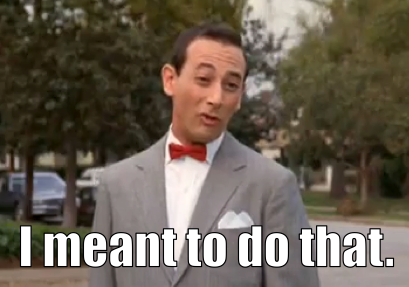
Posted on 01/12/2013 4:59:43 PM PST by Revolting cat!
If you happen to care about grammar and spelling, then in these post-literate times you can expect to be considered a pedant by the semi-literate, and a "grammar nazi" by the illiterate. My blood pressure rises when I see misuses of the apostrophe, pluralization with an apostrophe, "impact" as a verb, "pro-active" in all its uses, "there is a lot" and "there is many", "He would have if he would have", among other errors familiar to the readers among whom I don't expect to see makers of such errors. Still, I realize that the battle has been lost now. Here and elsewhere. Pidglish rules, and only foreigners speak proper English. I've known semi-literate CEOs who had graduated from Stanford.
A teacher told me once that people who make common grammatical and spelling mistakes tend to be non-readers, simply because we first learn to write by, gasp, reading. Do I want to read opinions of non-readers?
I have trouble with commas, commaizing too often or too little (hey, I can verbize as well as anybody!), but I was happy to read recently that my favorite author and conservative Mark Hel prin himself engages in battles with the editor of his books over commas.
I was less happy the other day reading the fifth or sixth novel of my new favorite author, recommended to me last year by the WSJ's mystery editor Tom Nolan, who (the author) writes literary mysteries, and has written over two dozen of them, while still remaining pretty much in the shadows, as my visits to the bookshelves of local Goodwill stores confirm where the Lee Childs rule. I hear he's more popular in Europe, even in translation, and at least one of the reader reviews on Amazon complains about his writing being too literary (!) (You guess his name!) By the way, is Cormac McCarthy's blood and gore "literary"? I'm asking because I haven't read him and refuse to watch the blood and gore movies made from his novels.
But I digress. In the mystery I am reading, in three places (so far) my new favorite published author uses the verb "to peddle" when he clearly means "to pedal", as he describes a boy riding a bicycle. What the heck? I've seen this error here more than once, just as I see daily "boarder" for "border" and "your" for "you're", among other beauties of our post-literacy, but a published author, edited by a professional editor?
Should I then write the man a hate mail?
I like jello and shadow puppets when the earth tilts to the equinox.

Mark Hel prin?
He’s a looser.
You shore, Shirley? (There is a similarly named Lefty Newsweak writer.)
I believe it’s “loser.”
Sieg Heil,
Your friendly neighborhood grammar Gestapo
If I had the malicious nature I would post some of my essays from students in my basic economics class. This would end all debate on the quality of instruction in the English language in the contemporary United States. Some of them (not all, I hasten to add) must be seen to be believed.
I have only one I really hate: I only have one I really hate.....

I saw this graffiti in Warsaw a couple of years ago. It means "Pedaling Ban!", a little too literally illustrated, mere words would have sufficed, because in Polish the word "pedał", that is "pedal" is a common name for a pederast, which has unfortunately been replaced in the U.S. and elsewhere by a synonym of the word "cheerful".
THERE CAN BE ONLY ONE!!!
-Highlander
I always appreciate those who are waiting with baited breath, because I can ask them what they’re using for bait!
Well, I only have eyes for you!
But I digress.
If you'd been in one of my freshman English classes, you'd have known better than to try to get away with a sentence fragment.
Having been published myself, let me say this is in no way the fault of the author. During a deadline discussion, 20 some years ago I received this sage piece of advice and have never forgotten it: Your job is to be creative. Submit your rough drafts and let the copy editors deal with it from there.
It’s a mistake I don’t understand. How would he describe a bicycle? “A bicycle has two peddles”?


“If you’d been in one of my freshman English classes”
The only thing I know is that the end of a sentence is not where a preposition should be at! Seriesly, this is hugh! A preposition is not what a sentence should end with!
Disclaimer: Opinions posted on Free Republic are those of the individual posters and do not necessarily represent the opinion of Free Republic or its management. All materials posted herein are protected by copyright law and the exemption for fair use of copyrighted works.